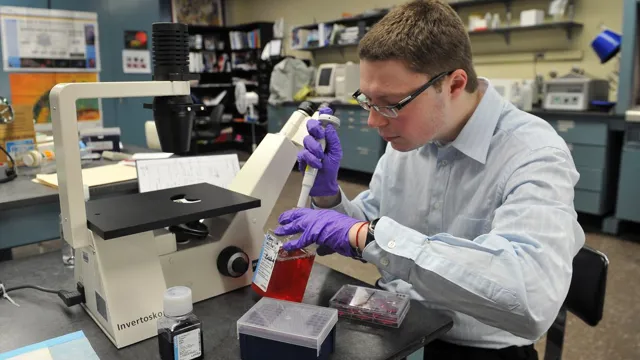Choosing A Career In Medicine - A Guide
Preparing for a career in the medical field should start at the high school level. With support from organizations like NSHSS, the availability of academic counseling and course tracks for specific medical careers has been increasing in high schools across the US. While traditional high school internships may not be possible in all medical fields, there are many other things high school and college students can do to prepare for a career in the medical field.
1. Choose an undergraduate field of study.
Most high school students do not realize that there is no such thing as a “pre-med” major. Rather, undergraduate college students should choose a scientific major that both prepares them for a medical career and gives them a backup plan. A career in medicine is not feasible for everyone.
The Association of American Medical Colleges recently found that 15.7 to 18.4% of all medical students drop out before completing their graduate degree. Meanwhile, Biomedical Central reports that about half of all medical students drop out in their first graduate year.
Another obstacle that faces medical students is a lack of available internships and residencies. Federal caps on funding for teaching hospitals have kept the number of available residencies at the 1996 level. There simply are not enough residencies for medical school graduates, and the competition is steep. For all of these reasons, having a backup plan is a good idea.
2. Take related AP classes and AP exams.
Science-based AP classes, labs, and exams are vital when preparing for a career in medicine in high school. According to College Board, most universities give college credit for AP courses. Those that don’t offer advanced placement. Both college credit and advanced placement opportunities eliminate prerequisites and may decrease the cost of your undergraduate degree. High school AP exams can also make an impact on medical school admissions.
3. Take at least one lab science course per semester.
Thanks to programs like the NSHSS STEAM Educator Grant, most high schools today offer at least a few science courses that offer accompanying labs. The labs are often elective rather than mandatory, but they are a great opportunity to prepare for college and medical school. You will learn how to successfully conduct experiments and analyze data, all of which are important for a career in medicine.
4. Develop stellar study skills.
Medical school is more demanding than other degree programs. The average course load for a medical student is the equivalent of 20 to 25 credit hours per semester. By contrast, the average course load for an undergraduate is 12 to 15 credit hours per semester. Study skills like speed reading, note-taking, organization, and exam preparation are vital to surviving in medical school.
The best way to develop study skills for medical school is by finding a mentor. Collegiate mentors in undergraduate or medical degree programs are excellent mentors for high school students preparing for a career in the medical field. NSHSS Collegiate Council Program is one way that these mentorships are facilitated.
It is also a good idea to develop a habit of keeping up with recent trends, news, government policies, and advancements in medicine. Expand your knowledge with new or ongoing research, ethics issues, and the intricacies of managed care.
5. Participate in science-related extracurriculars and clubs.
Extracurricular activities and science clubs in high school prepare you for a career in the medical field by giving you additional knowledge, real-world experiences, and networking opportunities. NSHSS and our partner DECA strive to ensure that these science and health extracurricular activities can be found in most high schools in America.
6. Look for high school opportunities to gain real-world experience in the medical field.
How to get a career in the medical field starts with high school experiences. A traditional internship isn’t possible for most health careers, but there are other ways you can gain experience and wisdom from health and wellness professionals.
- Volunteer for community health and wellness programs, such as Meals-On-Wheels.
- Look for shadowing and volunteer opportunities at local hospitals and clinics.
- Apply for high school internships and complete the NSHSS Intern Readiness Certificate Program to develop general skills and professionalism.
- Take one of the common first-time medical jobs for grads or with no degree requirement, such as in-home health aid.
To make the most of these opportunities, ask questions as much as possible. Watch and listen to everything going on around you. There are many skills and much information to be gleaned through observation alone. These observation and mindfulness techniques will serve you well as you pursue a career in the medical field.
7. Join academic societies focused on the sciences.
There are many academic societies focused on producing graduates for the medical field. Choose a scientific academic society for high school based on your primary area of study. These include the American Chemical Society, Society of Physics Students, and Tri-Beta, which is an academic society focused on biology. Contrary to popular belief, it is possible to apply for membership with these organizations while in high school.
Other academic societies are available specifically for high school students. NSHSS membership offers a lifetime of benefits to high school students to prepare for a career in the medical field.
